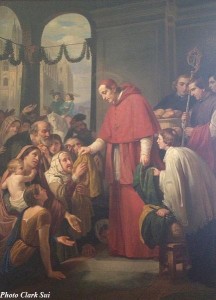 In dealing with today’s economic problems, it should be remembered that the plague of mass unemployment is a modern phenomenon. At the height of Christian civilization during the Middle Ages, unemployment was rare for reasons that were social rather than economic.
In dealing with today’s economic problems, it should be remembered that the plague of mass unemployment is a modern phenomenon. At the height of Christian civilization during the Middle Ages, unemployment was rare for reasons that were social rather than economic.
Economist Joseph Schumpeter notes that, in principle, medieval society provided for all its members. Its structural design “excluded unemployment and destitution” since all had a place in society. Family and parish served as safety nets that reduced unemployment to insignificance. When people did fall into poverty, he notes that “the charity enjoined and organized by the Catholic Church was perfectly able to cope.”
Like today, there were wars, plagues and other catastrophes that disrupted  economic activity. However, Schumpeter points out: “Let us remember in particular that mass unemployment, definitely unconnected with any personal shortcomings of the unemployed, was unknown to the Middle Ages…” (Joseph A. Schumpeter, History of Economic Analysis, Oxford University Press, New York, 1994, p. 270).
economic activity. However, Schumpeter points out: “Let us remember in particular that mass unemployment, definitely unconnected with any personal shortcomings of the unemployed, was unknown to the Middle Ages…” (Joseph A. Schumpeter, History of Economic Analysis, Oxford University Press, New York, 1994, p. 270).


